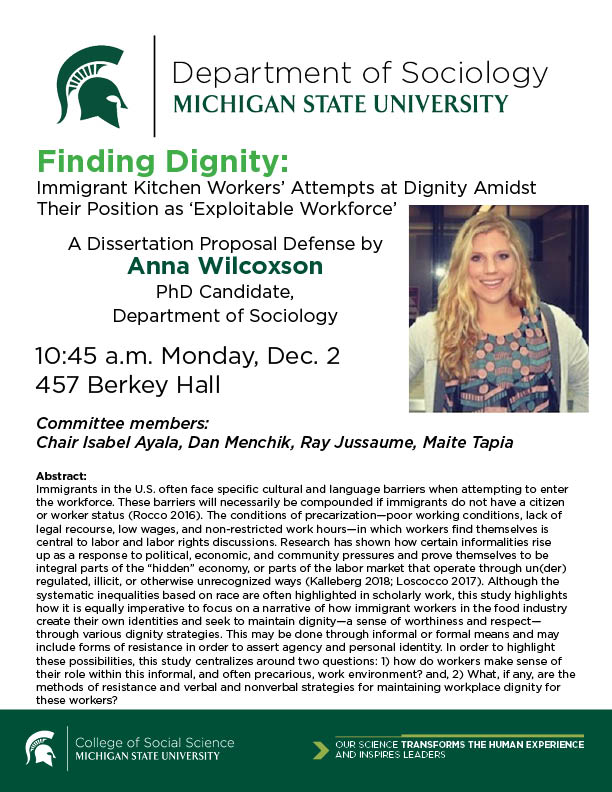Finding Dignity: Immigrant Kitchen Workers' Attempts at Dignity Amidst Their Position as 'Exploitable Workforce'
Mon, December 2, 2019 10:45 AM at 457 Berkey Hall
Anna Wilcoxson
Title: Finding Dignity: Immigrant Kitchen Workers’ Attempts at Dignity amidst their Position as an ‘Exploitable Workforce’
Abstract
Immigrants in the U.S. often face specific cultural and language barriers when attempting to enter the workforce. These barriers will necessarily be compounded if immigrants do not have a citizen or worker status (Rocco 2016)). The conditions of precarization—poor working conditions, lack of legal recourse, low wages, and non-restricted work hours—in which workers find themselves is central to labor and labor rights discussions. Research has shown how certain informalities rise up as a response to political, economic, and community pressures and prove themselves to be integral parts of the “hidden” economy, or parts of the labor market that operate through un(der)regulated, illicit, or otherwise unrecognized ways (Kalleberg 2018; Loscocco 2017). Although the systematic inequalities based on race are often highlighted in scholarly work, this study highlights how it is equally imperative to focus on a narrative of how immigrant workers in the food industry create their own identities and seek to maintain dignity—a sense of worthiness and respect—through various dignity strategies. This may be done through informal or formal means and may include forms of resistance in order to assert agency and personal identity. In order to do highlight these possibilities, this study centralizes around two questions: 1) how do workers make sense of their role within this informal, and often precarious, work environment? and, 2) What, if any, are the methods of resistance and verbal and nonverbal strategies for maintaining workplace dignity for these workers?.
Committee:
Isabel Ayala (Chair)
Dan Menchik
Ray Jussaume
Maite Tapia


